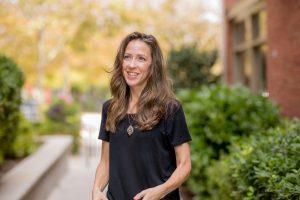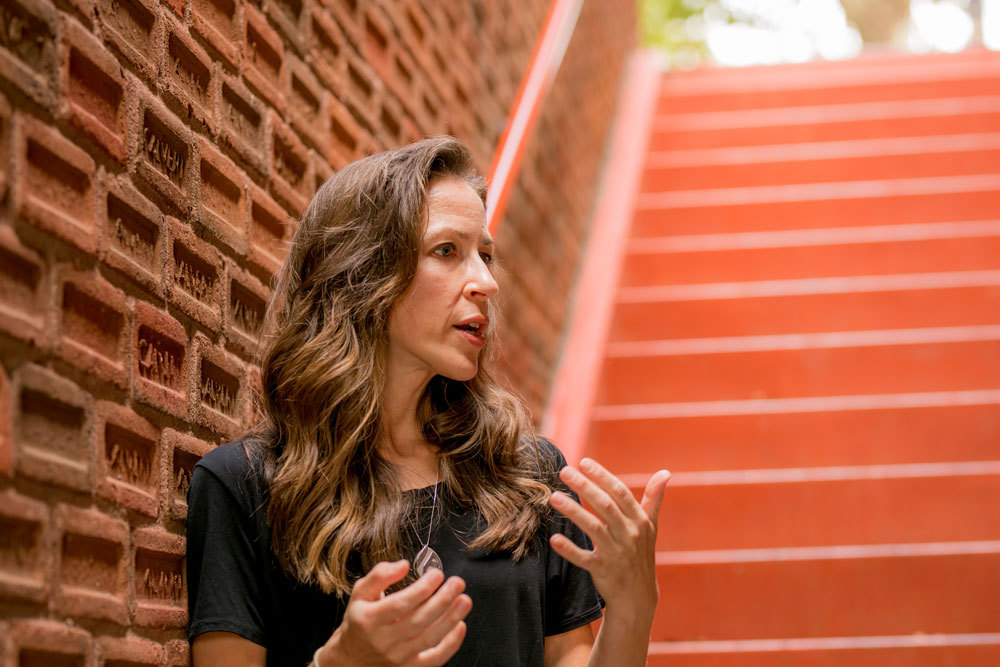Jay B. Landis and his checkerboard-wrinkled forehead: That’s basically what started Elizabeth Beachy Hansen ’99 on her career path. As a first-year student, she had biotech and science research leanings, some theater experience, a passion for playing marimba, and no declared major.
Landis was the faculty advisor for such people.
“He called me and said, ‘Well, What are the classes that you really want to take?’” she remembered recently. “Then he started telling me about all the things he was teaching, and so I ended up as an English major.”
Hansen loved not only Landis’s teaching but also the intense, collaborative process of theater, and the campus where she still feels at home.
So much has followed: a first playwriting gig (Jordan’s Stormy Banks for the Valley Brethren-Mennonite Heritage Center in Harrisonburg); an MFA from Regent University; her husband Dave, whom she met at a month-long Act One workshop in Chicago, various writing gigs that led to new writing gigs; and now, for about eight years, a reThink Group position in suburban Atlanta – oh, and two children, now nearly two and four years old.
“It’s definitely been a different world, the last few years,” she said. “A lot of what we’re doing right now is figuring out how do we continue to do this stuff we’re passionate about, around kids. It’s been a good challenge.”
Hansen is a script writer and story developer for reThink Group, which produces curricula and companion resources in a wide variety of formats for churches and parents. It calls its philosophy and strategy “Orange,” to represent how the joining of two forces – parents and church leaders – “will have exponentially more influence than either entity alone,” its website says. She’s seen her own kids connect with the resources at their church.
She also works with her husband Dave, a “whole-package” filmmaker, in their Arclight Studios, a career field she says is ironic for her: she grew up without television. Instead, “we had books. We had so many books.” She remembers a summer her mom took limiting measures because her little sister – now language and literature Professor Kirsten Beachy ’02 – was reading so much.
Collaborating with a spouse can be kind of like marriage therapy, she said. “Anytime you work together on a creative project like that, it brings out the best and the worst. We’ve learned how we work together as a team” – critiquing each other’s work included. That’s ultimately good for the art, since what emerges as a first draft is “really like a third or fourth draft,” she said.
Even though the Hansens work as Christians, theirs is not “Christian art” – it’s art.
“Stories are beautiful and wonderful and dangerous in that they carry a message,” she said. “That’s a powerful thing.” While some might use art to spoonfeed a message to audiences, Hansen’s definition of a Christian story is more rooted in, well, story:
“A Christian story would be a story that’s really well told, where somebody changes for better or for worse,” she said, “and because of something that we see in their story, we then start asking questions.”
Questions that, perhaps along with forehead wrinkles, can even start a professional journey.
